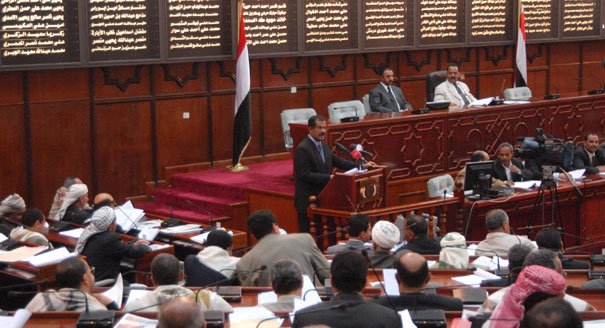Like Islamist parties across the Arab world, Yemen’s Islamist Congregation for Reform (Islah) has a religious ideology and platform. Islah participates in legal politics in hopes of accomplishing constitutional and socioeconomic reforms, and over time it has committed itself to upholding democratic procedures internally as well as externally.
Yet Islah differs from most other Arab Islamists. The party combines tribal influences along with those of the Yemeni Muslim Brotherhood and more radical Salafi groups. As a result, it faces deep internal divisions on key issues, including its relationship with the ruling establishment, its role in the opposition, and the participation of women in politics. Moreover, Islah is not simply an opposition group; until 1997, the party was a junior partner in a ruling coalition.
Under Yemen’s authoritarian regime, President Ali Abdullah Saleh and his General People’s Congress dominate political life, and there are no effective checks and balances among the different branches of government. Since its move to the opposition, Islah has had no choice but to cooperate with the regime in order to gain a degree of influence in key political choices. Yet its fractious composition prevents it from developing a clear parliamentary platform, forcing it instead to balance tribal and political interests, differing interpretations of the party’s Islamist platform, and both loyalist and opposition constituencies. As a result, no one knows where the party stands, and it has no clear path toward the reforms it seeks.
Between Government and Opposition: The Case of the Yemeni Congregation for Reform
Yemen’s Islamist Congregation for Reform party (Islah) faces deep internal divisions on key issues, and its fractious composition prevents it from developing a clear parliamentary platform, leaving the party with no clear path toward the reforms it seeks.
by Amr Hamzawy





